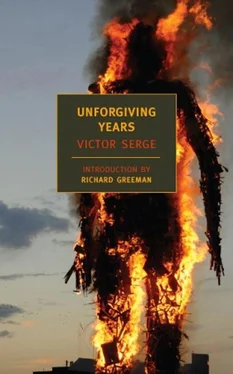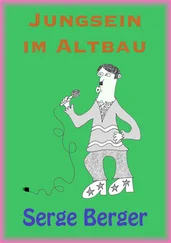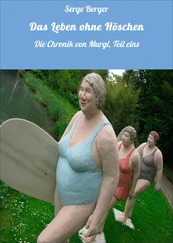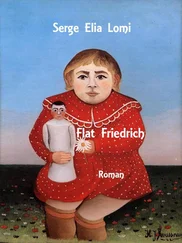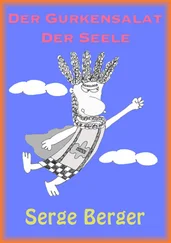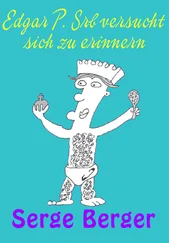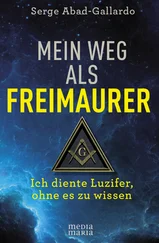Fair enough.
“Close the window, I’m cold,” said Nadine.
Worries thickened inside him: dark waters overflowing their banks. With the two little bedside lamps back on, the room felt more congenial. And there was something appealing about the maid who brought in their tray of consommé, cold chicken, and weak tea. “You’re Italian, aren’t you?” Nadine asked with friendly interest. “Yes, Madame. You can see it, no?” “We’re from Piedmont,” said Madame Noémi Battisti, seriously. “Don’t overdo the Piedmonts, what with our garbled Italian,” D teased later. “Remember Sorrento?”
“I do,” said Nadine, and she looked at him with her beautiful eyes full of wonderment.
“We’re starting a different life, Nadine.”
(More accurately he might have said: We are ending one whole life.)
“Are you happy with the name I found you — Noémi? A primitive woman’s name. I can see you bathing, as in Sorrento… It will happen.”
(At least admit the possibility. All that remains is to make it happen.)
That they would never again lay eyes on other, more humble places, clothed by winter snows more stirring than the gilded blues of Sorrento. Separately and together they both had this thought — and pushed it away.
“You have a lot of strength left, Sacha…” Nadine said sadly.
(Too much to no longer be of any use…)
“I’ve always believed that a man is identical to his will.”
She concurred, with her most limpid gaze, wondering whether he could be altogether sincere. Was he saying it to comfort her or to comfort himself? A man’s will counts so little these days — and his counted not at all now, not even enough to contrive a shaky salvation for them… While he, calm thanks to a courage that might only be a form of discouragement, told himself that will is sometimes no more than a breastplate clapped over a puny torso, stiffening the despair beneath. In order to exist fully, the will demands a goal.
“I almost like this room now,” Nadine said. “It’s so quiet outside. And those glimmers there across the boulevard are like flowers reflected in water…”
He refrained from pointing out the inaccuracy of the image. The nocturnal glimmers of Paris are those of a raging commercial furnace: not flowers or lakes, but electric discharges insinuating themselves into the nervous system in order to get people to buy and sell debauched pleasures! The hotel was drowsing off. The whine of the elevator grew fainter, a door closed, the plumbing boomed and gurgled, noises that were a part of silence, a reminder of the many disparate lives winding down their daily cycle. The one certain communion among men is found in exhaustion, in sleep. In the pathos of sleep all faces look alike, resembling the faces of the dead. Under every forehead, dreams play out nearly identical primordial desires in shifting arabesques, but there is no reconciliation there.
“We’re free tomorrow, Nadine, we can sleep for ages.”
To sleep for ages, a wish that reverberated within him. They got into their parallel beds, then Nadine, her milky arms raised and crossed behind her head, said, “Come here to me, Sacha,” because she was touched by a chill of loneliness. Their bodies met without the exaltation of love, letting go to a simple carnal tenderness. Closely entwined, they felt the same warm wave bring them the relief of simple existence. “Don’t think, above all, don’t think,” D repeated to himself. He succeeded, a healthy discipline. Nadine, whose rosy half-moon lids had closed, suddenly froze, her pupils wide and staring. “Listen… that noise behind the door…” Instantly master of himself, D watched the door in a mirror. The revolver within reach. A subterranean crackle came from the hotel doorbell, and stopped; a lethargic footfall grew fainter on the stair… “It’s nothing, darling,” he said, “don’t be afraid.” He caught a glimpse in the other mirror of her frantic face. The deep inner wave rocked him anew, a radiant smile erased the expression of apprehension verging on horror in Nadine’s features.
The world sank back into an order bereft of excitement, communion, and joy in which one is content merely to have lived, and to be suffering from neither a toothache nor an immediate terror. “Protect your peace of mind, Nadine… I don’t like these frightened attacks of nerves. We’ve run so many risks before!” Many, yes, but minor ones compared to what was in store, poisonous spiderwebs stretched across the final break with all the reasons for living — ideas, cause, motherland, unity in danger, invisible battle for the future, vision of a forward-marching world! Everything was falling apart, only risk itself remained, impoverished, coarsened by the loss of any real justification. “It’s awful, though,” Nadine said, “I must get used to the idea that…” D followed the curve of her fingers, the sheen of her oval nails, as she wiped the beads of sweat above her eyebrows. Who? This absurd jealousy was humiliating. See how weak the liberated man free of old moral conventions is in you! Nadine sensed that lying motionless beside her, he was slipping away from her. “Don’t leave me,” she said plaintively.
Mechanically, thinking exactly the opposite, he heard himself say, “Your encounter with Alain doesn’t make anything worse.”
“Sacha don’t mention that name to me ever again if you can help it. I hate him.”
He understood, obscurely but totally. “It’s really not worth hating him, Nadine…”
Before settling down to sleep, D went out to case the corridor. Two pairs of shoes left for cleaning outside the door next to theirs caught his attention. The male pair was repellently smart: gray snakeskin with crepe soles. The woman’s shoes, pushed out of shape by bulging feet, suggested an overweight person always trotting about town. “Miserable creatures,” thought D as he listened to the mingled snores of the sleeping couple. Back in their room, he glanced down at the street over which the row of lamps stood watch. Nothing alarming there. Nadine, her profile buried in a pillow under a tangle of hair, was asleep, a big, lovely, pacified child. “There is no sin in you, Nadine… Instinct knows nothing of sin…” He was hurting nonetheless, and reproached himself for thinking in terms of sin. Oh, what did words matter! The two loaded Brownings, each covered by a handkerchief, were luxury playthings, perfectly appropriate for their intended purpose, crafted in noble metal for the grand game of murder and suicide. We’ve come a long way since the flint dagger, such a cumbersome instrument for killing oneself! Did the primitive Ancestor have any inkling of voluntary death? Or is that an attainment of the higher civilizations, which offer no other means of escape? Let’s hope some analyst will one day elucidate this psychological question. As for myself, Mr. Analyst, I can’t help believing in an innate drive toward destruction and death. We will only have a true sense of the splendor of living in some distant, still-unimaginable future; perhaps we will have it… And that perhaps is our greatest justification, it even implies, for now, a sufficient justification of suicide… D switched off the lamps. Through the curtains a dim lacework of light patterned the room.
In the depths of slumber, Nadine felt an obscure — colossal — vise tighten impalpably around her. Formless tentacles turned into cold serpents twining around her body, a thick hawser weighed upon her neck. The black car opened to reveal its cramped cells. In each an upright cadaver was propped. Nadine was a little girl walking barefoot through thawing snow, reanimated by the vivifying burn of the icy water. A volley of bells rang out, Christ is risen, risen! There was an onion dome of fiery red peppered with golden stars, swaying horribly over shabby wooden houses, it’s going to fall, it’s falling! The Black Maria with its cells is leaving; it didn’t come for me but for other people, so much the better — not for me! I’m ugly and I have abominable thoughts. Crows flapped from one tree to another, for you, we come for you, they shouted, to pluck out your eyes! “But why must I be hanged?” Nadine demanded of the stern, hairless face that had popped up close to hers. Its lips moved slightly. “Hanged, no.” The serpent knots unraveled, vanished, the rope snapped, the gun went off in a violent spurt of night-blue flame within a rainbow cloud of smoke. The horror was in not being able to move — Oh god, it can’t be, it’s a bad dream, I’m going to wake up… Nadine woke up. A motorcycle was backfiring in the street. Her watch said 5:45, the hour of executions, more or less, when executions have an hour. It was still dark. She could only reconstruct the nightmare in incoherent snatches. Her hand shook as it reached for the tumbler of water. She nudged at a fold of batiste with her finger, and found herself intent upon the small Browning. Two squeezes of the trigger, and both of us would be delivered… Her hand shook worse because she was more frightened of this temptation than of all the darkness in the world. Through the fabric, so as not to feel its magnetic touch, she picked up the gun and leaned out of the bed to propel it onto the floor, under the other bed, Sacha’s. This move did her good, but now she could see herself in the mirror, a whitish specter looming indistinctly in the ever cold and twilit region where the dead await their turn to be reborn — or not, since resurrection is just another dead superstition… “Resurrection is dead, it’s a scientific fact.” Without thinking, she switched on the bedside light. Sacha was asleep on his back, broad forehead, thin mouth, protuberant blue-tinged lids, scarily unlike himself. Detached from the universe. Dead. Nadine weighed that certainty. The icy chill from beyond the grave became an all-encompassing peace. I am dead as well. It’s good. It’s simple.
Читать дальше
